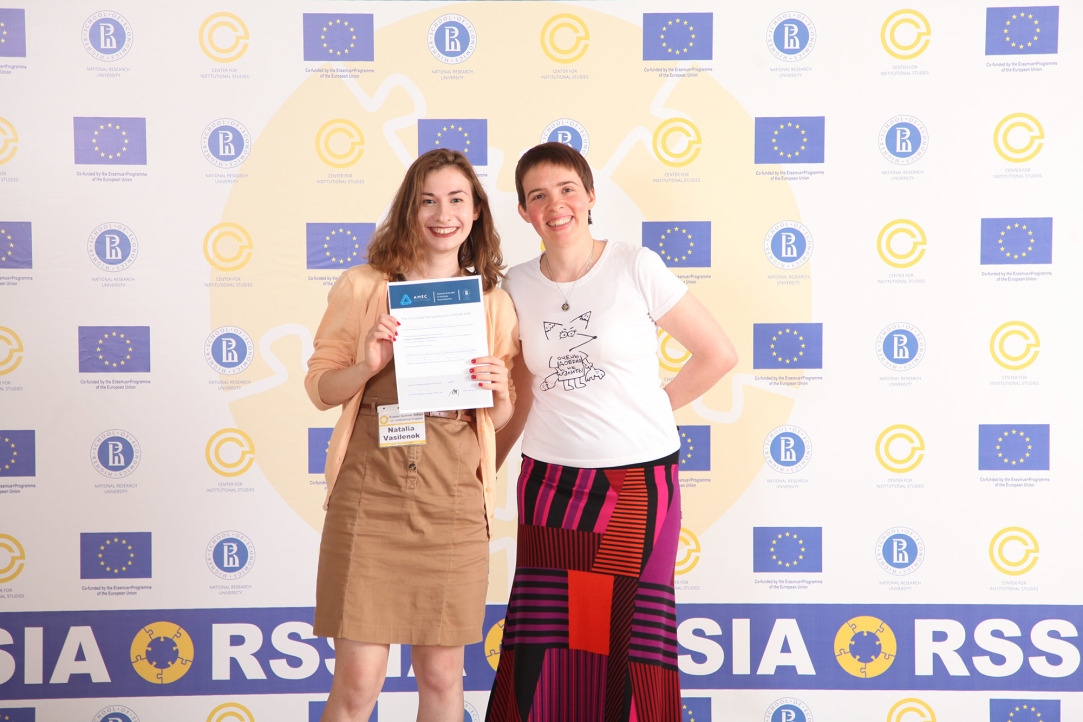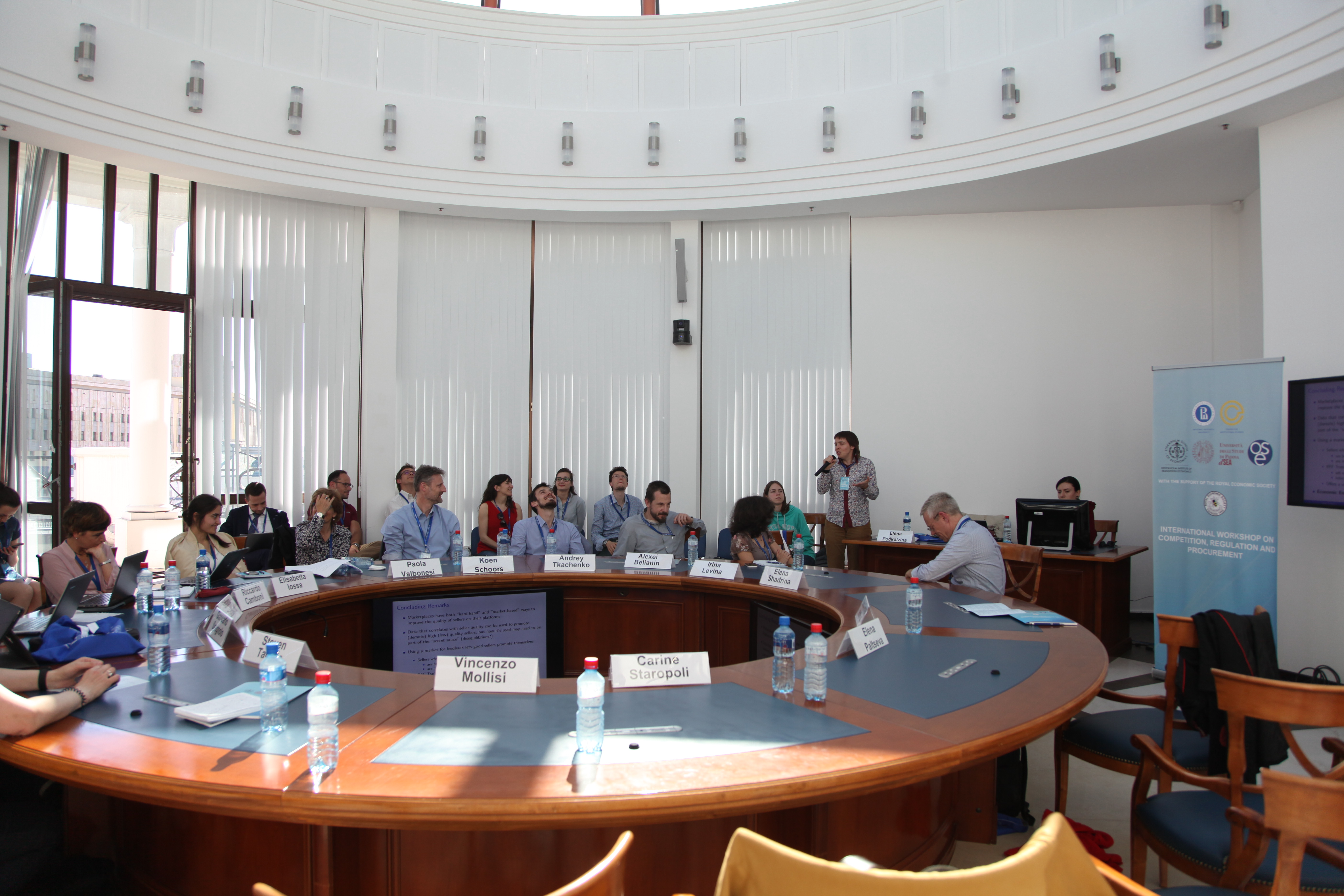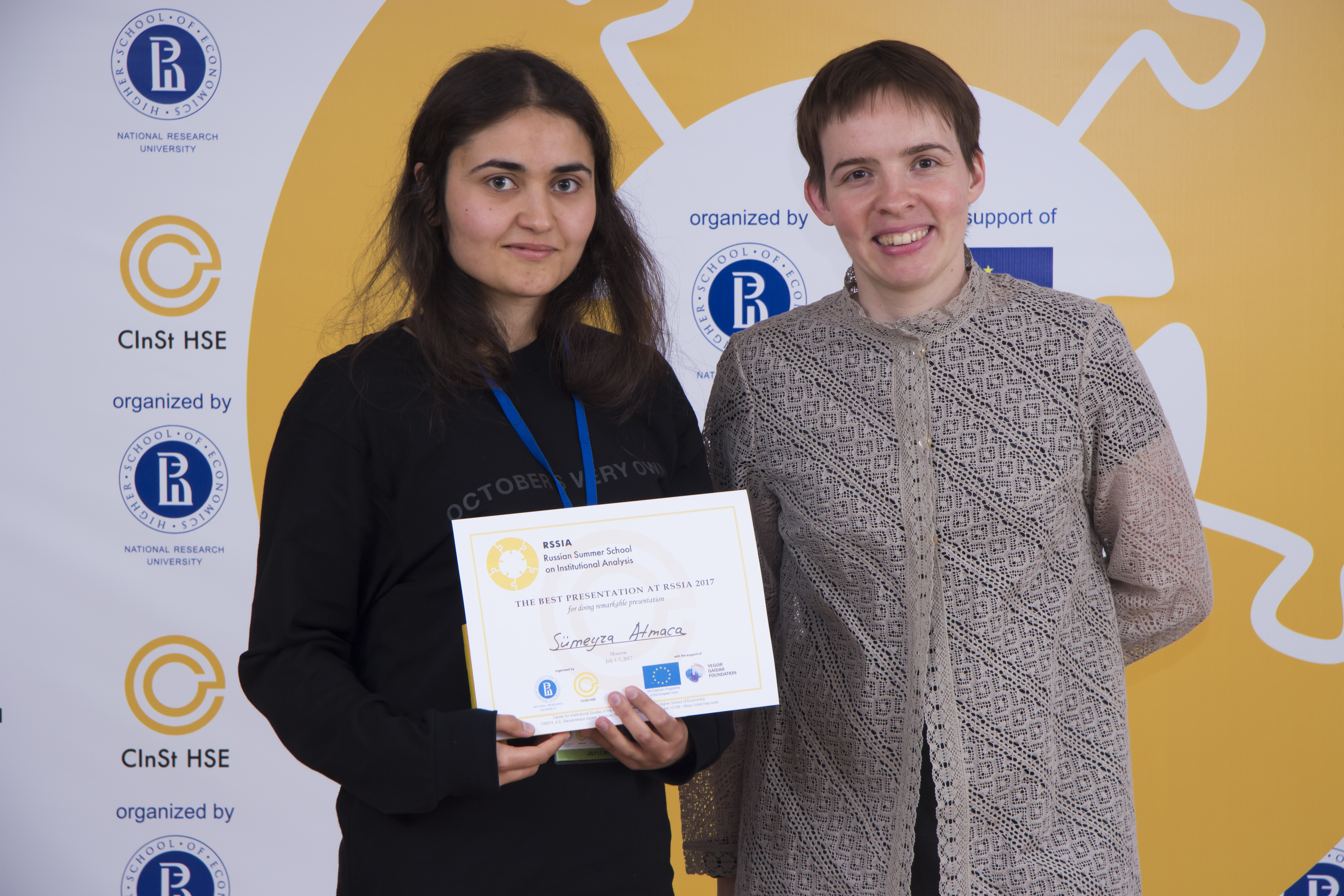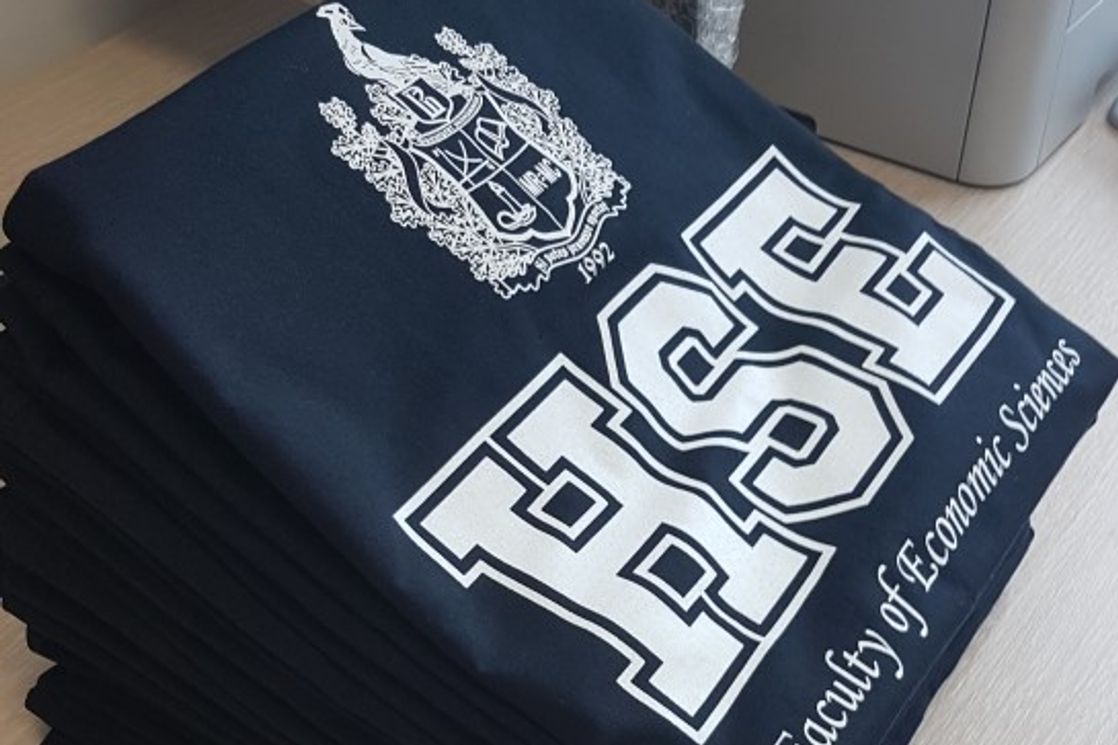Economic Empowerment at HSE University

HSE University alumna Dr. Elena Podkolzina recently became an academic supervisor of the newly established master's programme in Economics and Economic Policy. Having been part of HSE University for nearly 25 years now, Dr. Podkolzina recalls her student years and shares her experience as deputy director of the Center for Institutional Studies.
Elena Podkolzina,
Center for Institutional Studies, Deputy Director
I first joined HSE in 1996 as a bachelor's student. My friends challenged my choice of a ‘totally unknown university that called itself a school’—it was only the third intake of the bachelor’s programme, since initially HSE only had a Master’s level course.
I was inspired by the idea that the faculty would no longer speak of economics in the Soviet sense, but promised to teach principles of market economy, and how it really works. We had three years of general programme, and then, in the fourth year we could choose a specialisation, and I switched to Public Finance. Later on, I did a Master’s in Economics, with a concentration in Public Finance, soon turning to Economic Theory for my PhD.
Witnessing the University Grow
I’ve been a faculty member at HSE University for the past 20 years. We started as a small community, with only about 4 faculties—economics, management, law, and sociology, but over the years the university has grown in size, building up an endless list of academic programmes and opportunities now available to students.
I started studying at Kochnovsky Building—it was far from the centre of Moscow and there was no space at all for students to pass time or find a room for collaborative work.
Over the years, the university has created a lot of comfortable spaces for faculty and students to study, teach, and do research
In the early 2000s, there weren't enough books, subscriptions for economic journals or a good internet connection, so students had to visit libraries of other universities. But as time went on, the library acquired excellent subscriptions to academic journals and now also offers much more content online, including electronic books, which proved invaluable when the COVID-19 pandemic started.
Perks of an Academic Job
The best part of an academic job is the people—the opportunity to talk and collaborate with people all over the world. This really broadens one’s mind and helps us learn not only about economics but also about other cultures.
I’m talking not only about professors but also students because at HSE University we have academic mobility programmes, which enable many students from all over the world to learn about the differences in the educational systems and ways of thinking. I think this is an amazing opportunity!

Current Research Projects
Over the last years, in particular, my primary research interest has been public procurement. Now, we have three active projects. One, with my colleagues from Ghent University, concerns favouritism: we offer a statistical marker to flag preferences, so we are focusing on corruption. We show that the system of public procurement created a loop that can be used to some agents' advantage. We offer a methodology to define these situations.
Another project is related to the first one and deals with the link between the seller and the procurer. The idea is close to ‘first price discrimination’. During an auction, the procurer could understand what the costs of the suppliers are to choose the one whose costs are the lowest. The next auction starts with a price that is close to the lowest cost. The theory says that competitive auction is more optimal. But in reality, it can be very profitable to put the lowest price and only one efficient seller could enter the auction. The seller does not necessarily have ties with the procurer, but the procurer can limit the number of competitors by choosing a low price, not allowing other competitors into the auction. We cooperate on this project with researchers from Ghent University and the University of Padua.
In the third project, we use this pandemic as a measure of uncertainty. We want to see how the behaviour of buyers and sellers changes when uncertainty rises. Different regions of Russia have the same laws but different pandemic situations. We can compare them using econometric methods. First results of this project were published in the book Procurement in Focus: Rules, Discretion, and Emergencies.

The first two projects took several years to get results—they were long and complicated. Some of my students helped create the data set. We are working on our projects together with Koen Schoors and Paola Valbonesi, leading research fellows at the Center for Institutional Studies. We also collaborate with Sümeyra Atmaca, a former PhD student at Ghent University, and Riccardo Comboni, who is a former PhD student of Paola in Padua University.
For our ‘pandemic project’, we hired three students. For some reason, sociology and poli sci majors were most interested in it.
We are ready to work with students as long as they have proper research skills. Sometimes it even turns into an enriching experience since students can come up with fresh ideas that we won’t think of in the economics paradigm
Our Summer School
RSSI, the Russian Summer School on Institutional Analysis, is a summer school we host on new institutional economics. It is a long-term project. When I was a PhD student, I went to different summer schools, and I joined the European Summer School on New Institutional Economics three times. The summer schools were engaging and helpful for research because they gave me an opportunity to meet people from different fields of economics.
We decided to start a similar project for the former Soviet Union countries. First three schools were in Russian, which did not work well. In those three first summer schools, presenting your research was not about looking for the best decision or how to improve it, but about the best way to defend it.
We then introduced some English parts, thanks to John Nye who is familiar with Russian and was comfortable giving lectures in English to a Russian audience. It became harder to attract participants from the Russian regions, since their English is less advanced. So, we started inviting Russians from US and European PhD programmes.
Now I am very pleased to see many HSE University students as RSSIA participants
Now that the school is entirely in English, it continues to progress, attracting a diverse pool of participants. Of course, last year we still had to do it online and experiment with formats—to have more informal and extended communications like we used to before the pandemic when we hosted the school in an isolated nature resort outside Moscow. Now we turned to small group work to improve efficiency. We had a meeting in a hybrid format in September 2021.
New Master’s in Economics and Economic Policy
This programme is a classical master programme in economics. During the first year, we focus on basic knowledge, which from my point of view, each economist should have: macro, microeconomics, and econometrics. These are the three key disciplines in the 21st century for an economist. If there is something you don’t know there, then you are not a pure economist.
We have also introduced Python language as an obligatory course—big data is all around and you need tools to deal with it
Python can help to structure your mind and open doors to other programming languages. This creates a foundation for the future.

I want to prepare students who can easily adapt to different jobs, occupations, and markets. Twenty years ago, you could not find information, but now it has become easier. So, you need a solid base and an internal instrument to learn further.
Economists are still in high demand, but they should be able to deal with various problems, including big data
The programme has several tracks. One is focused on academia and research. For students on this track, Master’s in Economics will be the first stage of their PhD studies. They get advanced micro, macro and econometrics. This allows students to do research and also prepares them for working for the World Bank, Central banks, Bank of Russia, and others.
Today, we have a high demand from the Bank of Russia for people who are good at macroeconomics. The industry is really looking for people with the knowledge of monetary economics, DSGE modelling, and so on.
There are three more tracks: Applied Economics, Behavioural Economics, and Quantitative Methods in Economics. Graduates in these fields may work in think tanks, but they will also be most useful in any company that needs to forecast and model markets, societies or individual behaviour.
Most importantly, there is also an English track for international students. Admissions are already open. Early bird applications will be eligible for scholarships
Future Plans
I think I will need to fine tune and further develop the Economics and Economics Policy master’s programme. I will also continue with RSSIA summer school because I really love this initiative and the idea of collaboration.
But the main thing I want to do is to inspire my colleagues and students to invest in themselves—not only in their economics skills, but especially in soft skills, including communication and collaboration skills because we all live in a social environment and we need to be a part of this environment.
Prepared by Camryn Norwood, student at the University of South Carolina and intern at the Faculty of Economic Sciences
Paola Valbonesi
Leading Research Fellow, International Laboratory for Institutional Analysis of Economic Reforms
Elena Podkolzina
Deputy Director, Center for Institutional Studies
Koen Schoors
Leading Research Fellow, International Laboratory for Institutional Analysis of Economic Reforms
See also:
Economists Suggest Using Media's Attention to Bitcoin to Predict its Returns
Researchers at the HSE Faculty of Economic Sciences have studied the relationship between the changes in the bitcoin prices and the media attention to this cryptocurrency. The researchers examined the mentions of bitcoin in the media between 2017 and 2021 and built a mathematical model that revealed the strong relationship between media attention and bitcoin prices. The study was published in the Applied Stochastic Models in Business and Industry journal.
HSE Economists Develop a Model for Sustainable Solar Geoengineering Agreements
Researchers at HSE University and George Mason University have investigated the sustainability of prospective international agreements on solar geoengineering. The authors have proposed a scheme in which payments flow from affluent nations to less wealthy ones; an arrangement which sets their proposal apart from traditional systems. The proposed model aims to dissuade more vulnerable countries from excessive use of the prevalent geoengineering method by providing compensation for the potential damage they may incur and supporting their adaptation to climate change. The paper has been published in Environmental and Resource Economics.
Crypto Investors Receive Downside Risk Premiums
Victoria Dobrynskaya, Assistant Professor at the HSE Faculty of Economic Sciences, has analysed the price dynamics of 2,000 cryptocurrencies from 2014 to 2021 and investigated the association between downside risks and average returns in the cryptocurrency market. As it turns out, cryptocurrencies exhibiting a greater risk tend to yield higher average returns. The study has been published in International Review of Financial Analysis.
Results of the Contest to Predict Nobel Prize Winners in Economics
Claudia Goldin's award was predicted by five people. They are Olga Peresypkina (RSVPU), Anastasia Sirotina (first-year student of the Bachelor's in Applied Mathematics and Information Science at HSE University), Mikhail Shabanov (Global Vision Asset Management LLC), Tatul Hayrapetyan (PhD student at the Stanford Graduate School of Business), and Hemant Kumar (Ettumanoorappan College, Kerala, India).
Financial Sector Risks Can Hinder Transition to Green Economy
According to HSE and MGIMO economists, increased financial sector risks in developed countries may be associated with a higher carbon footprint in banks' loan portfolios. This is likely due to the fact that in response to an unstable economic situation, banks tend to issue more loans to companies that have a detrimental impact on the environment. Although this might yield short-term profits for the banks, such trends hinder humanity's progress towards achieving a green economy. The paper has been published in Environmental Science and Pollution Research.
Winner of 2023 Nobel Prize in Economics Announced
The Royal Swedish Academy of Sciences has awarded the Sveriges Riksbank Prize in Economic Sciences in Memory of Alfred Nobel 2023 to Claudia Goldin (Harvard University, Cambridge, MA, USA), ‘for having advanced our understanding of women’s labour market outcomes.’ According to the Nobel committee, Professor Goldin has uncovered key factors that determine gender differences in the labour market.
Millennials Are Three Times Ahead of Zoomers in the Monetised Creator Economy. Even Boomers Outperform Them. Okay Then…
A group of specialists from the HSE Institute for Cultural Studies, Vitaly Kurennoy, Alexander Suvalko and Maria Figura, have determined two main trends that are actively shaping the image of the creative economy and culture in 2021-2023: the creator economy and the maker economy.
Teaching Masters' Students and Conducting Lectures in English Boost Academic Productivity
HSE researchers have analysed teaching load data at the HSE campus in St Petersburg to investigate the potential impact of teaching on faculty research output. They found that factors such as teaching primarily masters' courses, conducting 20% of lectures in English, and supervising only one doctoral student per year were associated with a greater likelihood of producing more high-quality academic papers. The study has been published in Higher Education Quarterly.
'HSE Paved My Road to Harvard'
Nargiz Mammadova, from Azerbaijan, is a 2022 graduate of the Economics: Research Programme and a finalist of the Global Essay Competition in St. Gallen. As she prepares to start her Master of Public Administration in International Development programme at Harvard in August 2023, Nargiz reflects on her time studying at HSE University during the COVID-19 pandemic, talks about her work for the State Oil Fund of Azerbaijan, and shares an important message for future students.
Income and Cost of Living Distribution Found to Be Similar in Russia and US
Researchers at the HSE Faculty of Economic Sciences Laboratory for Wealth Measurement analysed income and cost of living data at the sub-regional level in Russia (municipalities) and in the US (counties). The study reveals that territorial differences in the cost of living are more pronounced in Russia compared to the United States. However, the distribution of overall income across settlements of varying sizes is quite comparable in both countries. The article has been published in the HSE Economic Journal.


